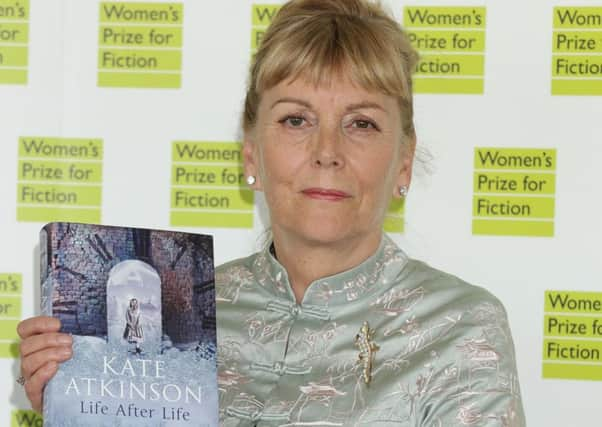The literary prizes that boost more than just a writer’s wallet


THE year is barely a week old and already the first literary awards have been dished out.
Yorkshire author Kate Atkinson was among five prize winners of the Costa awards, announced this week, who will go head-to-head at the end of the month for the £35,000 Costa Book of the Year Award.
Advertisement
Hide AdAdvertisement
Hide AdThe York-born writer, whose Case Histories detective novel was adapted into a TV series starring Jason Isaacs, won the Costa novel award for Life After Life, a tale of perpetual resurrection set in wartime Britain.
It comes 19 years after Atkinson’s first novel, Behind The Scenes At The Museum, was crowned overall Costa prize winner, and if she goes on to win this again she will become the first female author to do so, with Seamus Heaney and Ted Hughes the only two authors to have won the overall prize twice.
These days, though, it seems we’re awash with literary prizes with major sponsors including everyone from the BBC to Specsavers. So whether it’s crime fiction and sports biographies, or children’s books and poetry, there are a slew of prizes up for grabs.
In the UK, the biggest literary prizes are arguably the Man Booker, The Women’s Prize for Fiction, (formerly known as the Orange Prize and this year sponsored by Baileys) and the Costa Book Award.
Advertisement
Hide AdAdvertisement
Hide Ad“These are the big three,” says Jon Howells, of Waterstones. “Then there are others like the Samuel Johnson Prize that are also important. One of this year’s Costa winners, The Pike [by Lucy Hughes-Hallett], also won last year’s Samuel Johnson Prize in November which caused sales to rocket.”
With so many books out there now it has become increasingly difficult for readers to ‘discover’ new authors and literary prizes are seen as one way of highlighting fresh literary talent.
“It’s good to be able to say ‘Man Booker prize winning author’, or ‘Costa Book winner’ and it does make a big difference, especially early on in a writer’s career,” says Howells. “Eleanor Catton won last year’s Man Booker Prize for her second novel [The Luminaries] when she was a relatively unknown author, so for her it has a huge impact.”
Having a literary prize to their name helps in more ways than one. “It benefits the author in the sense that their earnings increase immediately on the book that wins and if they have a back catalogue then this gets a boost. But it also means you’ve got more people who want to read your next book and it probably helps add a few noughts on the end when you come to sign your next book deal.”
Advertisement
Hide AdAdvertisement
Hide AdWinning a poetry prize won’t have the same kind of impact as winning the Man Booker Prize, and with so many literary prizes flying around has it reached the stage where there are simply too many? Nicola Solomon, chief executive of the Society of Authors, doesn’t think so. “It does seem that there are an awful lot of prizes around but even the smaller ones can boost an author. With advances going down the money isn’t to be sniffed at but it’s also about the recognition,” she says.
“We have prizes for translators, people who often go completely unnoticed, and this is a way of recognising their work and making them feel that what they do is worthwhile,” she says.
“The publishing world shouts quietly compared to the film industry and awards are a way of saying that reading does matter and so do the authors.”